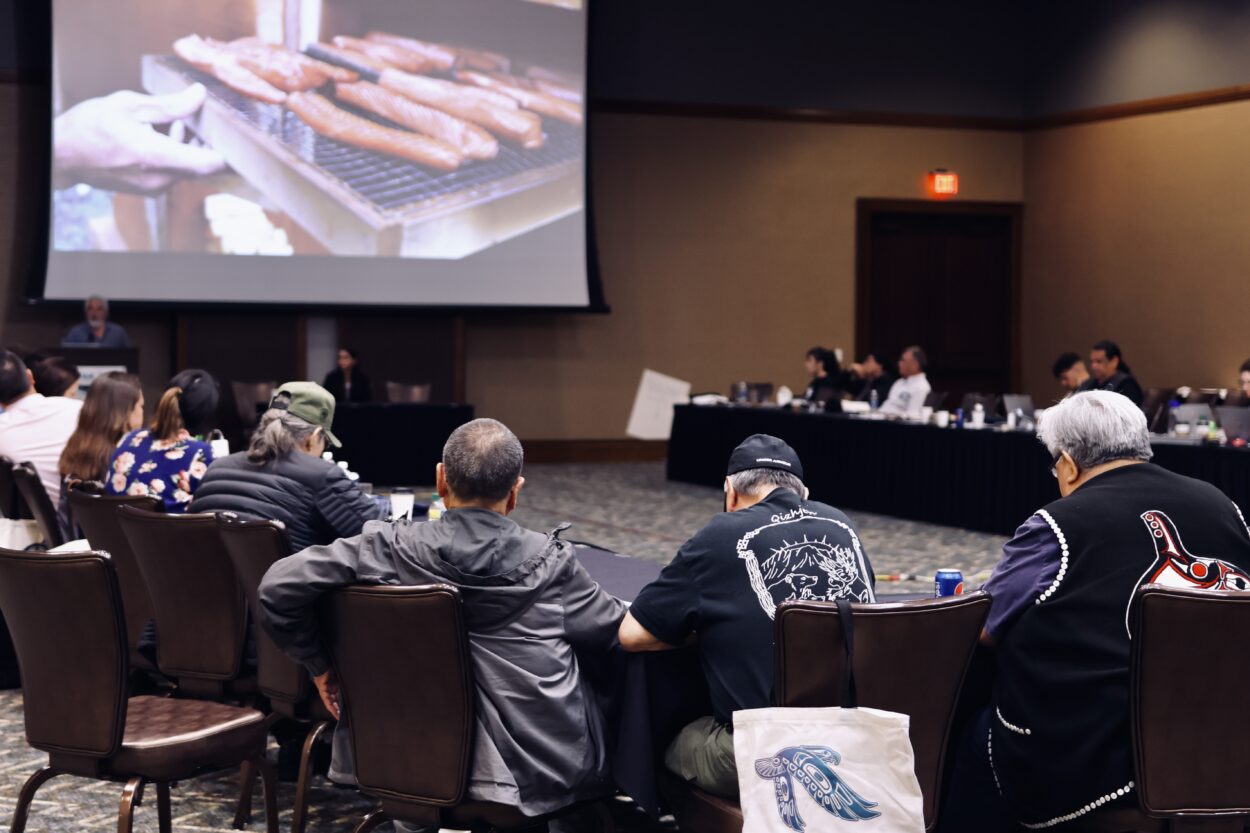
Tribes in Southeast Alaska and across the border in Canada have declared an emergency for salmon facing environmental risks. Leaders with the Southeast Alaska Indigenous Transboundary Commission made the announcement at the 4th Annual Indigenous Leaders Summit in Washington last week. The transboundary commission represents 15 Tsimshian, Tlingit, and Haida Nations.
They say that Pacific salmon are facing habitat loss and degradation of critical waterways on both sides of the border.
Guy Archibald is the commission’s executive director.
“We’re seeing declining salmon stocks across the board, especially king salmon or chinook,” said Archibald, “and we’ve come to the conclusion that there’s no time to waste.”
At the summit, participants talked about what they experienced at home.
“Our people no longer have salmon running in our streams. Salmon only live in our stories,” said Violet Gatensby, a youth representative from Carcross, Yukon.
Archibald says the commission wants two specific things to come from the salmon emergency declaration. They hope to unify tribes in Alaska and Washington along with First Nations in Canada to strengthen their message. And, they want recognition for the traditional territories of Southeast Alaska tribes that run across the border. Archibald says the lands are now in British Columbia and are subject to several large mines – some operating and some that are being proposed.
“Canada has to recognize, you know, those traditional boundaries and give Alaska tribes a real seat at the table on how these mines are developed,” he said.
Archibald gave the example of the Unuk watershed east of Ketchikan, which has several mining projects– like the Brucejack goldmine, the proposed KSM goldmine, and the Eskay Creek Revitalization Project, which is an old gold mine looking to reopen.





